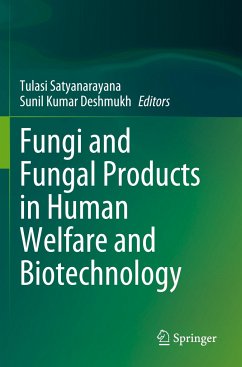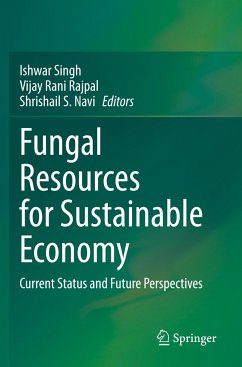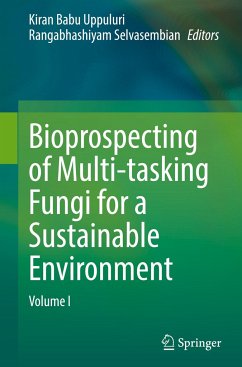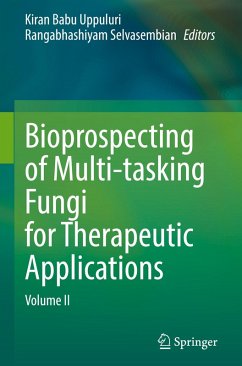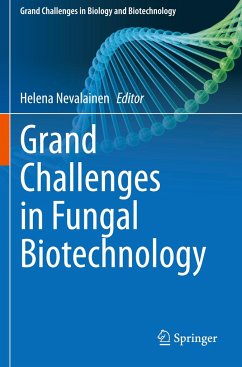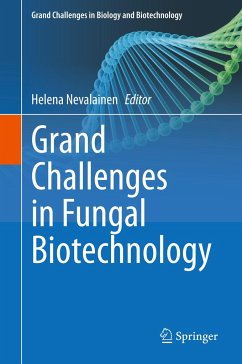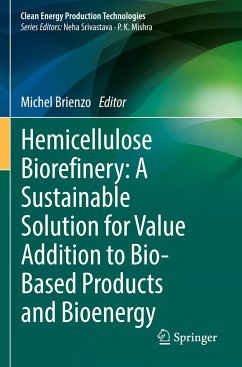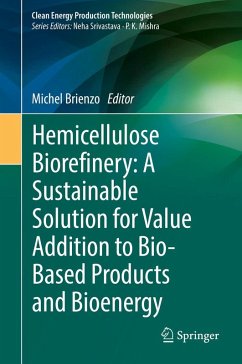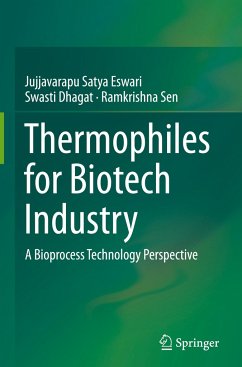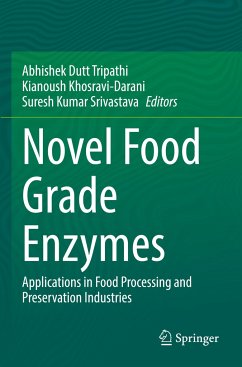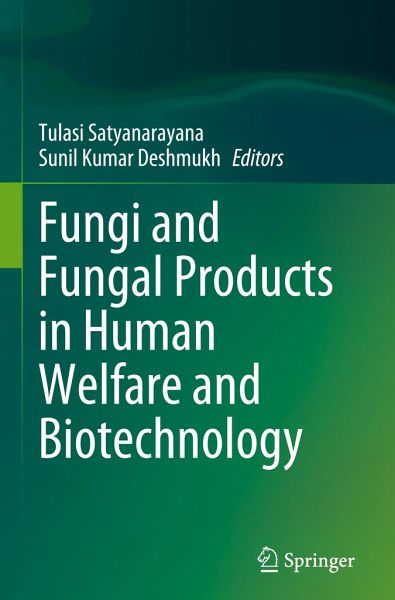
Fungi and Fungal Products in Human Welfare and Biotechnology

PAYBACK Punkte
87 °P sammeln!
This book presents various biotechnological applications of the fungal systems in pharmaceuticals, nutraceuticals, textile industry, bioremediation, biofuel, and the production of biomolecules. It discusses the important role of fungal secondary metabolites in human welfare and nutrition. It explores fungi as the vital sources of novel substances with antidiabetic, antibiotic as well as prebiotic properties. The book further describes the natural and unique ability of fungi to biodegrade macro- and microplastics by using them as a source of carbon and energy. Notably, it presents the propertie...
This book presents various biotechnological applications of the fungal systems in pharmaceuticals, nutraceuticals, textile industry, bioremediation, biofuel, and the production of biomolecules. It discusses the important role of fungal secondary metabolites in human welfare and nutrition. It explores fungi as the vital sources of novel substances with antidiabetic, antibiotic as well as prebiotic properties. The book further describes the natural and unique ability of fungi to biodegrade macro- and microplastics by using them as a source of carbon and energy. Notably, it presents the properties and applications of bioactive fungal polysaccharides and discusses the latest developments in utilizing these biopolymers in human nutrition. In addition, the book examines the production of biodegradable and sustainable natural colorants from fungal sources. This book is a valuable source for mycologists, biotechnologists, and microbiologists for understanding the important role of fungi in biotechnology.



